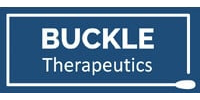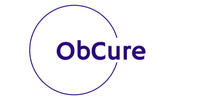- Organizer


Cooley LLP
Cooley is the top law firm for emerging and mature life sciences and healthcare companies, investors and all those supporting the industry, and provides counsel to 1,900+ public and private life sciences and healthcare company clients worldwide, including nearly 50% of the Nasdaq Biotechnology Index. Named 2021 Life Sciences Corporate Firm of the Year by LMG and The Deal’s 2021 Healthcare, Pharma & Biotech Law Firm of the Year, the firm counsels on all aspects of life sciences technologies for established public companies and growing startups.
www.cooley.com/hub/life-sciences-test@company
- Presenting Companies



Brinter Inc
Brinter, a MedTech platform company, develops the first-ever series of 3D bioprinted bio-synthetic implants for the $4B soft tissue repair market. Starting with rotator cuff tears, we offer unprecedented patient benefits highly desirable in sports medicine, commercial 2025. Our platform business model launches new implants for future applications every 2 years, offering more products and large MedTech IP-acquisition/out-licensing opportunities.
www.brinter.com/@company
Buckle Therapeutics
Buckle Therapeutics is developing fast, effective, needle-free delivery of urgently needed medicine. Buckle’s patented medical device delivers drugs via the buccal mucosa (inside of cheek and gums) with an onset of activity comparable to injection and much faster than swallowing. Use of the device requires no prior training, patient prep, or direct patient contact. Their first product is an easier-to-use, lower cost alternative to naloxone nasal spray, addressing the rapidly growing $1B opioid overdose rescue market, claiming more than 100,000 lives a year. Their technology platform makes it possible for us to address urgent, historically intractable, human health needs, offering meaningful patient benefits.
www.buckletherapeutics.com/@company



Repoxegen Therapeutics
Repoxegen Therapeutics
Drug development for aging-related re3nal and neuro-degenera3ve diseases has generated at best modest
www.repoxegen.com@company
results. Clearly, new approaches are urgently needed, especially ones that avoid invasive injec3on and
infusion therapies and go beyond targe3ng amyloid, tau, and drusen accumula3ons. We are developing an
innova3ve approach to these illnesses with a small molecule ready for human studies. It is an op3mized
pre-clinical product, orally available, blood brain barrier penetrant, with good pharmacokine3c proper3es
and demonstrated in-vivo efficacy in animal models.
Our novel approach is driven by the observa3on that func3onal faDy acids in cells (par3cularly abundant in
the re3na and neurons) become damaged, resul3ng in a shiG to chronic inflamma3on, cell death, and
degenera3ve disease. Damaged func3onal faDy acids are a more fundamental driver of these diseases than
accumulated proteins or gene3c varia3ons.
We are developing an inhibitor of an enzyme that converts neuroprotec,ve faDy acid epoxides into proinflammatory neurodegenera3ve oxidized fats that cause further damage to proteins and fats, leading to
disease condi3ons, par3cularly Alzheimer’s disease and re3nopathies. Our target enzyme is upstream of
tradi3onal drug targets such as amyloid and tau deposi3on, microglial and complement ac3va3on. Our
drug is shown to downregulate the tradi3onal markers of disease, and we also shiG the cells away from a
pro-inflammatory profile, improving a broad range of markers of neuroinflamma3on, protein aggrega3ons
(amyloid and tau) and complement ac3va3on. Human clinical data from first and second genera3on sEH
oral inhibitors have shown good human safety and have also demonstrated behavioral level efficacy in
mul3ple Alzheimer’s and re3nopathy animal models. Our partners in new and improved sEH inhibitors are
researchers at the University of Barcelona (UB), from whom we have closed an exclusive license to new
composi3onal IP on this class of drug. Based on the UB work, these compounds are op3mized to move
into late-stage preclinical development and are compelling enough to eschew the first 4-5 years of typical
drug lead development work.
Viscera Labs, Inc.
Viscera Labs, Inc. was founded in 2019 based on the observation that gastroenterologists prescribe
www.viscera-labs.com/@company
approximately 20% of all prescriptions of colesevelam (Welchol) which is indicated for the reduction of
LDL cholesterol. It was subsequently learnt that gastroenterologists prescribe colesevelam to reduce
the levels of bile acid in patients suffering from bile acid diarrhea (BAD). BAD is the consequence of bile
acids not being reabsorbed efficiently in the terminal ileum and reaching the colon.
The current formulation of colesevelam is designed to treat high cholesterol, but it’s not ideal for the
treatment of BAD. Many patients don’t tolerate bile acid sequestrants (which include colesevelam,
cholestyramine, and colestipol): up to 70% of patients discontinue these products due to adverse events
such as nausea.
A more tolerable formulation of colesevelam that targets the terminal ileum where bile acids are
reabsorbed in healthy individuals and ultimately reduces the amount of bile acid in the colon is needed.
Viscera’s VL-001 is a proprietary enteric coated formulation that is designed to pass through the upper
GI tract and release the colesevelam at the terminal ileum.
To date, Viscera has conducted three preclinical studies to assess the delivery of VL-001 to the terminal
ileum and to evaluate its efficacy:
1. VL-001-P01: assessed delivery
2. VL-001-P02: assessed efficacy
3. VL-001-P03: confirmed efficacy
The USPTO has issued three patents on behalf of VL-001:
1. US 11,524,029: claims directed to a method of treating BAD
2. US 11,590,161: claims directed to an oral drug delivery system
3. US 11,813,283: claims directed to a method of treating insufficient glycemic control
Viscera has manufactured sufficient tablets for the phase 1b trial that is envisioned following the filing of
the IND; their stability is currently being assessed.
Viscera seeks to raise $6.0 million to file the 505(b)(2) IND and to undertake the phase 1b trial.
For further information, please contact JP Benya, President & CEO:
• 973-865-5587
• jpbenya@viscera-labs.com